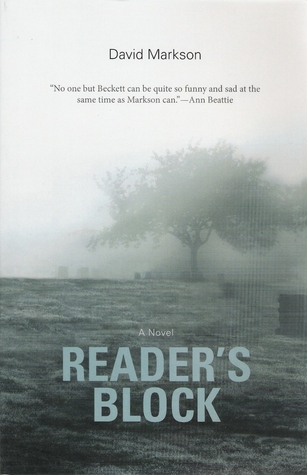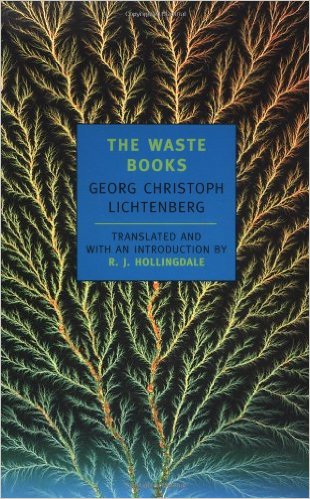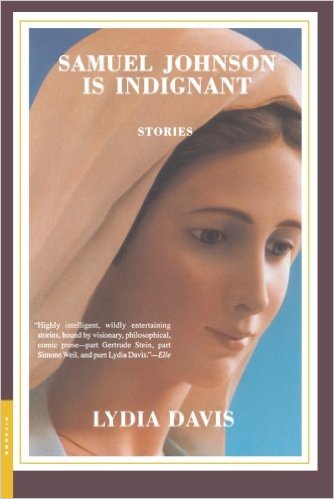Sarah Sloat on Without Category
 Sarah Sloat is a poet and a journalist. Born in New Jersey, she has lived in Germany for over 20 years.
Sarah Sloat is a poet and a journalist. Born in New Jersey, she has lived in Germany for over 20 years.
As a poet, her work is smart, sharp, dry, and sometimes tender. Confessional yet fanciful. She cannot be pinned, and is not easily explained. She is without category.
Sarah works in news, spends a lot of time reading, and prefers Sexton to Plath, she says. Of one of her book choices below, she writes, "the book is like a museum of solitude, curated by someone who’s spent his life reading." This, too, could serve to sum Sloat's own keenly observed and irreverent poems.
Sloat is the author of four poetry chapbooks: Inksuite, Excuse Me While I Wring this Long Swim out of My Hair, and Heiress to a Small Ruin. In the Voice of a Minor Saint, is online and completely free.
Sarah Sloat offers her three favorite books that are Without Category:

 Reader’s Block
Reader’s Block
by David Markson
I love everything I’ve read by David Markson. I single this book out because it’s the first I read. Four years ago, on a visit to New Mexico. April 12, 2012 / Santa Fe, it says in the front flap. It’s not categorisable because what is it. Is it a novel? Is it a meditation? Is it a compendium of anecdotes?
One of the epigraphs is Borges: “First and foremost, I think of myself as a reader.”
And so we are launched into the solitary musings of a narrator who calls himself “Reader,” who is considering writing about “Protagonist.” The plot is the barest of frames, and mostly serves as a storehouse for Reader’s collection of cultural and literary trivia.
Anna Wickham committed suicide.
Stephen Foster died after a fall from a rooming house on the Bowery. He owned thirty-seven cents.
Seneca was an anti-Semite.
And so it goes. Who died how. Who worked where. Who had typhus, or malaria. Who hated Jews. Who screwed whom. It is greatly preoccupied with death and disease and genius.
After I read it, my mother picked it up. I thought she wouldn’t take to it, but she loved it, and continued on to other Markson. She said, “You know why I liked it? Because I spend a lot of time alone.”
I knew what she meant because the book is like a museum of solitude, curated by someone who’s spent his life reading. It’s a fragmented and seemingly random collage of clipped entries, like thought itself, striding or jumping from one thing to next. It’s obsessive and fascinating. Dear Reader, how are you going to die whole unless you’ve read David Markson?

 The Waste Books
The Waste Books
by Georg Christoph Lichtenberg
This book is without category not because it isn’t clear what it is — a collection of aphorisms and short writings — but because Lichtenberg takes on anything, from snowballs to lust to the weather in Göttingen, where the witty hunchback was a scientist at the university.
If you want to take the rainwater cure you should come to Göttingen, where there is a fresh supply at all times.
The Waste Books is inspiring not only because of its insight and charm, but because it came of the author’s diligence in writing down his stray thoughts. The title is taken from business — ‘waste books’ being ledgers used to record transactions as they occurred. You never know what riches this discipline might yield, and the book has been admired by many writers, including Susan Sontag, Friedrich Nietzsche and André Breton.
A sampling:
Nothing can contribute more to peace of soul than the lack of any opinion whatever.
There are countries where it is not uncommon for officers who have served well in a war to be reduced in rank when peace arrives. Would it not be a good thing if in certain departments of government the officials, or some of them, were reduced in rank whenever war breaks out?
You can take the first book you lay your hands on and with your eyes closed point to any line and say: A book could be written about this. When you open your eyes you will seldom find you are deceived.
Lichtenberg died in 1799 but his aphorisms defy age. I’m afraid you’d be missing a very good and inexpensive education by passing up The Waste Books. Take it from Lichtenberg himself:
Let him who has two pairs of trousers turn one of them into cash and purchase this book.

 Samuel Johnson is Indignant
Samuel Johnson is Indignant
by Lydia Davis
If we have to pigeonhole Lydia Davis somewhere, the short story might as well be the place. But many of her stories verge on prose poems. Plenty have no discernible plot. Some are like accounting exercises, like “Finances,” or linguistic romps, if a romp can be conducted in 10-20 words. And why not?
Many of Davis’s ultrashort stories are less narrative than terse observation that take on an oddness by being thrown down onto the page in isolation. Some are single sentences, which can hardly count as stories in a traditional sense. In Samuel Johnson is Indignant, for example, “Information From the North Concerning the Ice” consists only of:
“Each seal uses many blowholes and each blowhole is used by many seals.”
Davis says part of the inspiration for her stories came from translating the expansive, meandering sentences of Marcel Proust. She wanted to write something very short that still managed to hang together and have a point. She also credits the prose poet Russell Edson with challenging her to try a new style.
“The floor is something we must fight against,” Edson wrote.
One of the standout pieces in Samuel Johnson is “A Mown Lawn,” which was included in Best American Poetry anthology in 2001. It begins:
“She hated a mown lawn. Maybe it was because mow was the reverse of wom, the beginning of the name of what she was — a woman. A mown lawn had a sad sound to it, like a long moan.”
Readers admire Davis’s playful wit and tone. I find her aloof recounting of everyday happenings almost like an out-of-body experience. And lord knows that is something I like to have.

 Post a Comment
Post a Comment
Reader Comments